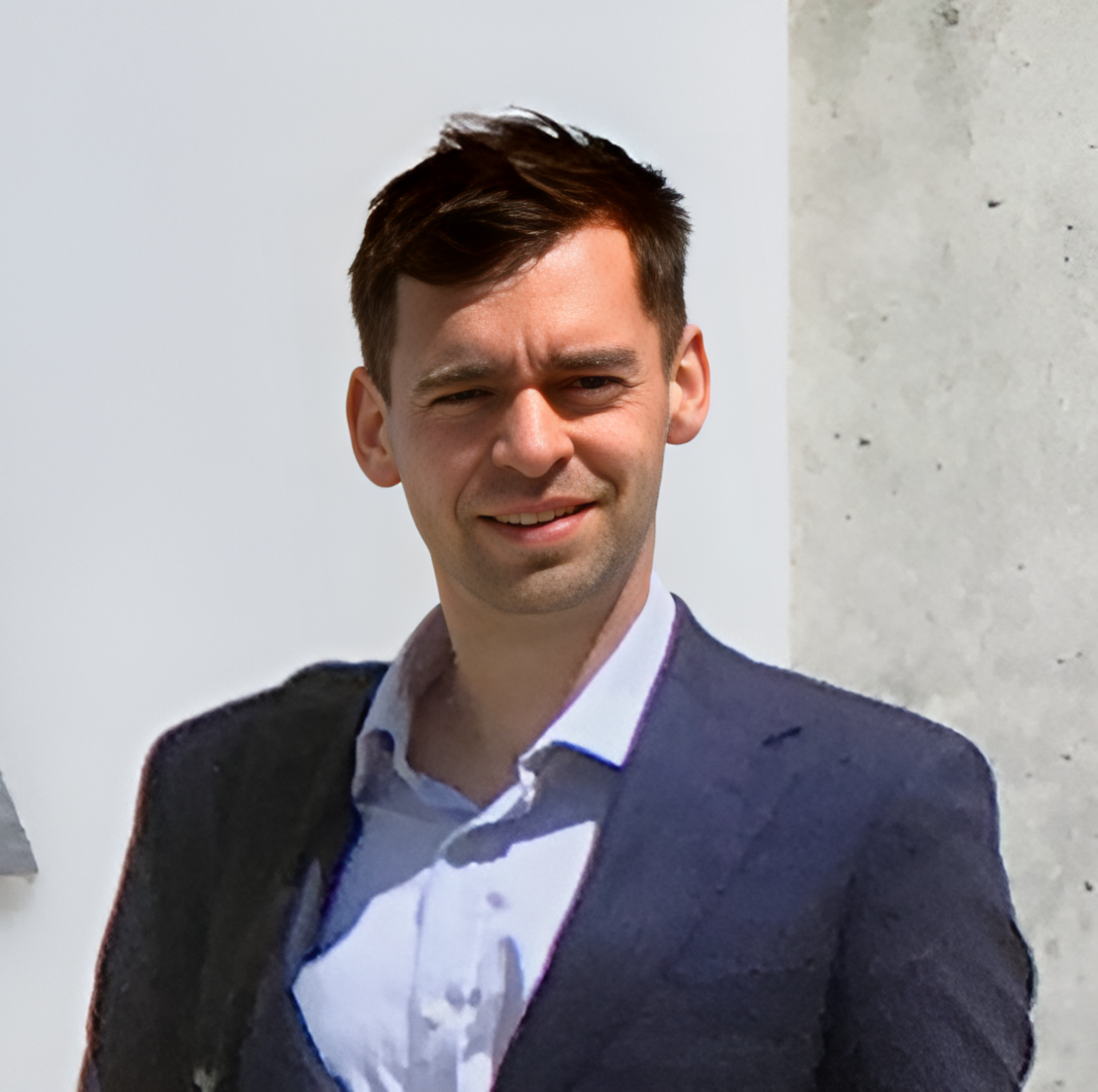- Innovation
Innovating with Real World Impact the Goal for UEFA and IMD at ‘Innovation Week’
Improving the experience of football fans at Euro 2024 with the 2019 UEFA Innovation Challenge Powered by IMD, ECAL and ThinkSport for MBA candidates
For the past two years IMD participants have come together for one intensive, and often inspirational week-long module of their MBA – to compete in Bouquet’s annual innovation challenge.
This year 18 teams made up of participants from IMD as well as ECAL (the renowned design school also based in Lausanne), pushed themselves to learn the practice of innovation through process, experience, effort, and – perhaps above all else – through teamwork.
In 2017 and 2018 Bouquet’s Innovation Week took the form of the Debiopharm-Inartis challenge: to improve the lives of healthcare patients. This year it was the 2019 UEFA Innovation Challenge: to improve the experience of fans attending Euro 2024 in Germany – with the week culminating in a trip to UEFA headquarters for the teams to pitch their ideas directly to UEFA representatives and an expert jury, with a view to the best of these ideas being adopted and implemented at the 2024 European Football Championships.
“Healthcare was a fantastic, inspirational challenge for us – but after two years, we wanted a change,” says Bouquet. “With sport it's fun, it's pleasure, it's lifestyle, it's fitness, it's wellness - it's all the good things! With health you are dealing with situations that are very serious, very dramatic. It’s about reducing the pain in the world. This was inspirational for us, of course, but sport is very inspirational too. It’s something that unites people.”
Lausanne, beautifully situated overlooking Lake Geneva, is the ‘Olympic Capital’ of the world and in addition to the IOC over 50 other sports associations are based here, forming an ecosystem of international sports organizations which IMD’s latest innovation challenge capitalises on to great effect.
Aside from the shift in subject matter, what else has changed this year?
“One major change is that I wanted this to be not only an innovation lab, but a leadership lab too,” Bouquet explains. “Last year with our inter-disciplinary teams combining MBA candidates with design students – in some cases it worked really well, the teams could draw on the benefits of that diversity and put it to good use – but in some cases it proved to be very difficult and painful to align. We had some great teams that were full of potential but that never found a way to truly gel.”
“I realised this is not just an innovation exercise, it's a leadership journey they are going through. Our teams need to be able to understand who they are, what it is that each person brings to the table, and then find a way to get motivated and united behind a shared goal.”
“This year I wanted to make sure we took more time to set the teams up properly, so they spent the first afternoon with a coach, sharing their assumptions about the challenge and formulating the team. Who is each person on the team? What is it that each person can bring that is unique, or special, that could help the team? By the end of the week what would make us proud? Whether or not we win the competition can we agree on what success looks like? And what do we agree to in terms of ways of working? There are values, principles that we are committing to – can we agree on these? This became a team charter and this is now a crucial element at the start of the week.”
So is this really an innovation lab or leadership lab? Or is it both?
“It's both. It's not that one is more important than the other. You cannot succeed on the first task, resolving the problem at hand, without having a good team dynamic. You can neglect it, you can ignore it, but ultimately it will catch up with you.”
One major change is that I wanted this to be not only an innovation lab, but a leadership lab too
One major change is that I wanted this to be not only an innovation lab, but a leadership lab too“The human side of things, the team unit – this is something you've got to take care of. You've got to let people reflect on what is happening, address the course of action, be sensitive to the people around them. We know this from our work with organizations – but what I realised is that even for a week, it makes a huge difference.”
“I run a lot of innovation journeys at IMD and what you end up realising is that it is actually quite easy to come up with good ideas. Coming up with good ideas is not the tough part. The tough part is mobilising people behind those ideas. A lot of good ideas just die because they don't create momentum, they don't bring support behind them.”
If defining a shared metric for success is important for the teams, how does IMD – and Bouquet in particular – measure the success of this innovation week?
“The first measure is evidence of impact. At IMD we care about impact. We're not just a training school, we are a school that is helping people change the world. Transforming teams, transforming organizations, transforming industries – to make the world a better place.”
“The hope is that UEFA will implement some of our ideas. We will make the world a better place because an organization that has the power to change things will implement our ideas, resulting in added value for the fan. This is impact and this is always the first measure.”
“Secondly, I want this to be a learning exercise. We are doing this to learn the process of innovation. I want them to take away essential skills and methods they can apply to other complex problems they will face.”
“My third indicator of success is when I look at the work our teams have done. I want to feel that they've pushed themselves, that they've not simply stuck to their comfort zone. Maybe even they are challenging the way UEFA thinks about certain ideas and what is possible.”
“This is where a group of non-experts can make a difference, because they are not part of that world. They can propose crazy ideas that would never have been identified by the experts. They would not even think of it.”
At IMD we care about impact. We're not just a training school, we are a school that is helping people change the world
Perhaps the most impressive aspect of this important week in IMD’s calendar, is the range and breadth of relevant talent and expertise that is assembled, and which orbits around the teams in a network of support tailored precisely for the endeavour of innovation – from coaches offering new skill-sets, to project stakeholders offering new perspectives, to proto-typing technicians offering physical manifestations of a team’s thinking – right up to the ‘end users’ (in this case football fans) – offering real-life test cases for their ideas.
One such expert was team coach Christiaan Page who has worked on technology implementation at the Olympic Games for the past 20 years and all around the world. Who better qualified to ground the participants thinking in matters of real-world applicability?
“The real-world aspect of this challenge for me is really important; it generates different types of thinking when you know UEFA might be implementing your idea. I come from the real-world implementation side and teams have been asking me questions like; how would we deploy this, what would be the risk, what are the potential issues we might run into?”
“People might see the Olympic games as an opportunity to show off cutting edge technology – but actually the reverse is true. We work on the basis of being super risk averse. The first concern is: you want it to work – because there is so much risk and exposure if it doesn’t work – the brand reputational risk is huge. When analysing these proposals I was looking at it from the side of ‘ok, what’s the risk that this doesn’t work?’ – and in addition to that, ‘how is it funded?’” said Page.
As well as feeding in the range of perspectives from this network of outside experts and stakeholders, the group must also draw upon the diversity within their own teams, something of vital importance for Bouquet; “You create a diverse team so you have this collision of ideas. In just one team you get these very different ideas, and the group must find a way forward – and ideally a way forward that’s not via compromise, but rather synergistically: taking the best of both approaches and moving forward.”
Input from ECAL’s design students is central to this ethos of inter-disciplinary teams – with one design student paired with five MBA participants in each of the eighteen teams. Cécile Vulliemin, who leads this partnership from ECAL’s side, explains, “We want disciplines to be more connected than ever, and for everyone to benefit from each other’s skills. The goal for ECAL is to look at how we can provide our design students with the best skillset, and that includes a knowledge of business principles. Collaboration with IMD MBA participants helps them acquire that. This week they can become better designers, more ready to collaborate with clients, and better integrated when it comes to designing something within an organization.”
So at the end of this intensive week, this collision of ideas and perspectives, and with the input and support of this broad constellation of experts – what ideas were pitched, and which did UEFA identify as winners?
One team impressed in the final by tackling the question of accessibility by focusing on fans who might have ‘invisible needs’ (e.g. chronic back pain, early pregnancy). Their solution: a social movement ‘#FootballForAll’ – encouraging football fans to be more aware of the needs of others around them – wearing badges to show their awareness, ‘Captain of Change’ scarves for those volunteering at a higher level, and ‘#FanOnBoard’ armbands for pregnant tournament goers. This was an idea that was low on cost but high on impact, thought the jury.
Another team identified a group of ‘lost fans’ in new parents who had abandoned the idea of tournament attendance as something not yet child-friendly enough. Their solution was a ‘Family Football Village’ to be implemented in tandem with the ‘fan zones’ already present at major sporting events, with playgrounds, story-telling, face-painting, and mini pitches with coaching and games – creating a family space that was both safe full of opportunities for physical activity, fun, and commercial opportunities too.
Ultimately the winning team pitched ‘Euroband’ – a wristband with RFID technology designed to reassure worried parents and let them keep track of their families’ whereabouts at stadiums and ‘fan zones’. The jury praised this as an elegantly simple and yet highly effective solution to a clear problem.
For Cyril Bouquet, the true disruptor is always the creator: “They wrap their disruptive idea inside something more acceptable. So you are disruptive, but you are linking the past to the future, and using things that are already being done, so that your very disruptive idea, becomes implementable.”
IMD is a top-ranked business school, expert in developing leaders, transforming organizations and creating immediate and long-term positive impact.
ARTICLES YOU MIGHT LIKE
VIEWPOINT
Cognitive neuroscientist, Lynda Shaw, explains how to understand and support intrapreneurs
DEVELOPING LEADERS QUARTERLY MAGAZINE AND WEEKLY BRIEFING EMAILS


































